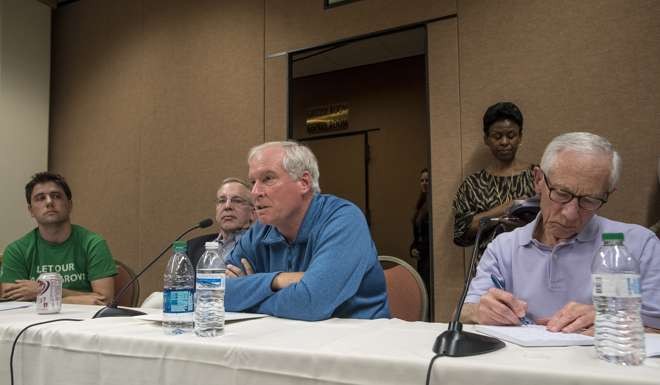
New | Fed’s Rosengren feels ‘gradual tightening’ will prolong recovery
Federal Reserve Bank of Boston President Eric Rosengren moved more firmly into the camp of hawkish policy makers, warning that waiting too long to raise interest rates threatened to overheat the US economy and could risk financial stability.
A 2016 voter on the Federal Open Market Committee, Rosengren argued for years to combat unemployment with low rates. As the labor market has tightened, he has shifted his stance in recent months in favour of tightening.
“A failure to continue on the path of gradual removal of accommodation could shorten, rather than lengthen, the duration of this recovery,” Rosengren said, according to the prepared text of a speech Friday in Quincy, Massachusetts.

Fed officials will gather in Washington September 20-21 to consider raising rates for the first time since hiking in December. Solid employment reports in recent months, coupled with modest wage gains, have led to calls from some FOMC members for an increase in the target range for the benchmark federal funds rate from 0.25 per cent to 0.5 per cent.
Expectations for an increase among investors have dipped in recent days, however, after the Institute for Supply Management’s gauges for both services and manufacturing came in worse than expected in August.
Rosengren said the strong job reports were complemented by gains in pay.
“Modest increases in wages and salaries seem to me consistent with tightness in labor markets beginning to appear more strongly in the wage data,” he said.
While weak growth across the world’s developed economies continued to pose a threat, he said that didn’t seem to weigh on equity markets, including those most sensitive to global shocks.
“With the exception of Europe, the potential concern with fragile global economies does not seem to be strongly priced into financial assets,” he said. On balance, he added, risks to the US forecast “are becoming increasingly two-sided.”
Rosengren also took aim at an argument offered by some of his colleagues, including Chicago Fed
President Charles Evans, that it’s safer for the Fed to err on the side of waiting, because the consequences of moving late are more easily addressed -- by subsequently raising rates more rapidly -- than the consequences of going too early.
“Monetary policy has not been a precise tool, capable of gently guiding the economy back to full employment in periods when we have exceeded sustainable, full employment,” Rosengren said.

The Fed raised rates in December in the first such move in almost a decade. While continually signalling a desire to tighten, Fed officials have been delayed by concerns over global growth and surprise events, like Britain’s vote to exit the European Union and a very weak US employment report in May.
Fed Governor Lael Brainard, seen as a leading opponent of rate increases for much of the past year, is scheduled to deliver a speech in Chicago Monday outlining her views on the economy and monetary policy.

